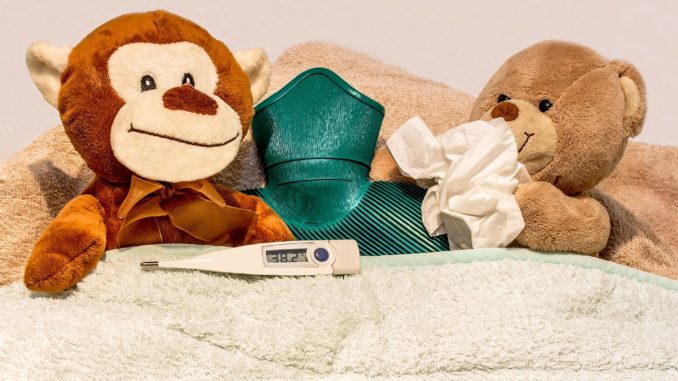
With flu season fast approaching, and plenty of people coughing and spluttering on public transport, it’s time to up your germ-prevention game
CREDIT: This is an edited version of an article which originally appeared on Huffington Post
Dr Andrew Thornber, a registered GP and chief medical officer of online pharmacy Now Patient, tells HuffPost UK he swears by these 11 tips for avoiding the perils of the cold and flu season – and, while they’re obviously not 100% foolproof, they’re certainly better than nothing…
Don’t bite your nails
It might come as a shock, but biting your nails is very bad news – especially in the flu season. “Your nails are a breeding ground for germs so the more you nibble, the more chance you have of developing infections or the flu,” Dr Thornber says. Wearing gloves when you’re out and about might help you resist the urge.
Wear a scarf
We all know buses, trains and the like are riddled with germs; but what might surprise you is that an everyday winter accessory could do you a lot of favours when it comes to keeping cold and flu at bay. “Wearing a scarf helps a little to prevent inhaling contagious germs,” says Dr Thornber. “It is also worth washing your hands after using public transport too.”
Wash your hands A LOT
While we’re on the subject of washing hands, you should be ensuring you do this frequently throughout the day – especially after using the toilet and before eating. “I’d recommend carrying a little bottle of hand sanitiser to use regularly to keep germs at bay, especially when travelling on public transport and working at a desk,” he advises.
Eat healthily
The cold weather might make you crave comfort food, especially junk food, but Dr Thornber advises against it for the sake of your health. “Try to avoid fatty, unhealthy food and opt for lots of fruit and veg – at least five pieces a day – which are packed with healthy vitamins to give your body a well-deserved boost.”
Exercise
The doctor says exercise helps to make your white blood cells (the ones which help to fight infections) travel through the body faster and do their jobs better. “Make sure you’re doing at least 30 minutes of exercise three times a week to keep your body in the best condition.”
Get a good night’s sleep
Eight hours are advised by experts. Lack of sleep can weaken the immune system, making you more susceptible to winter illnesses.
Steer clear of stress
“Stress has a huge impact on your body and can play its role in making you more susceptible to getting ill,” says Dr Thornber. Of course, avoiding it is easier said than done.
Neil Shah, of the Stress Management Society and author of the 10-Step Stress Solution, previously told HuffPost UK, “A vital action in order to minimise risk is to identify stress-related problems as early as possible, so that action can be taken before serious stress-related illness occurs.” (Read more on how to combat stress here.)
Cut down on booze
The more you drink, the weaker your immune system becomes, and that’s when flu and colds will likely strike, Dr Thornber explains. He advises cutting down on your alcohol intake to keep in tip top form.
Get your flu jab
If you’re offered the flu jab make sure you get it, he adds, as it gives people a better chance of fighting flu. Public Health England’s medical director, Professor Paul Cosford, said the number one way to protect against ‘flu is to have a vaccination. Anyone can have it, but those not classed as being in an at-risk group will have to pay.
This year there are two jabs on offer, including an immune-boosting vaccine for the over-65s. (Check out our flu jab explainer here.)
Take your vitamins
Dr Thornber swears by a daily dose of vitamins. “It’s vital to get your RDA [recommended daily allowance] for vitamin E and other antioxidants including A, C and B-complex vitamins and minerals, as they have properties that enhance immune response.”
Don’t smoke
Smoke paralyses the cilia, the hair-like cells lining the nose and airways that sweep incoming viruses away before they can infect. If you smoke you’re basically giving viruses free range to enter your body and wreak havoc – not wise.
Don’t forget to follow us on Twitter, like us on Facebook, or connect with us on LinkedIn!


Be the first to comment